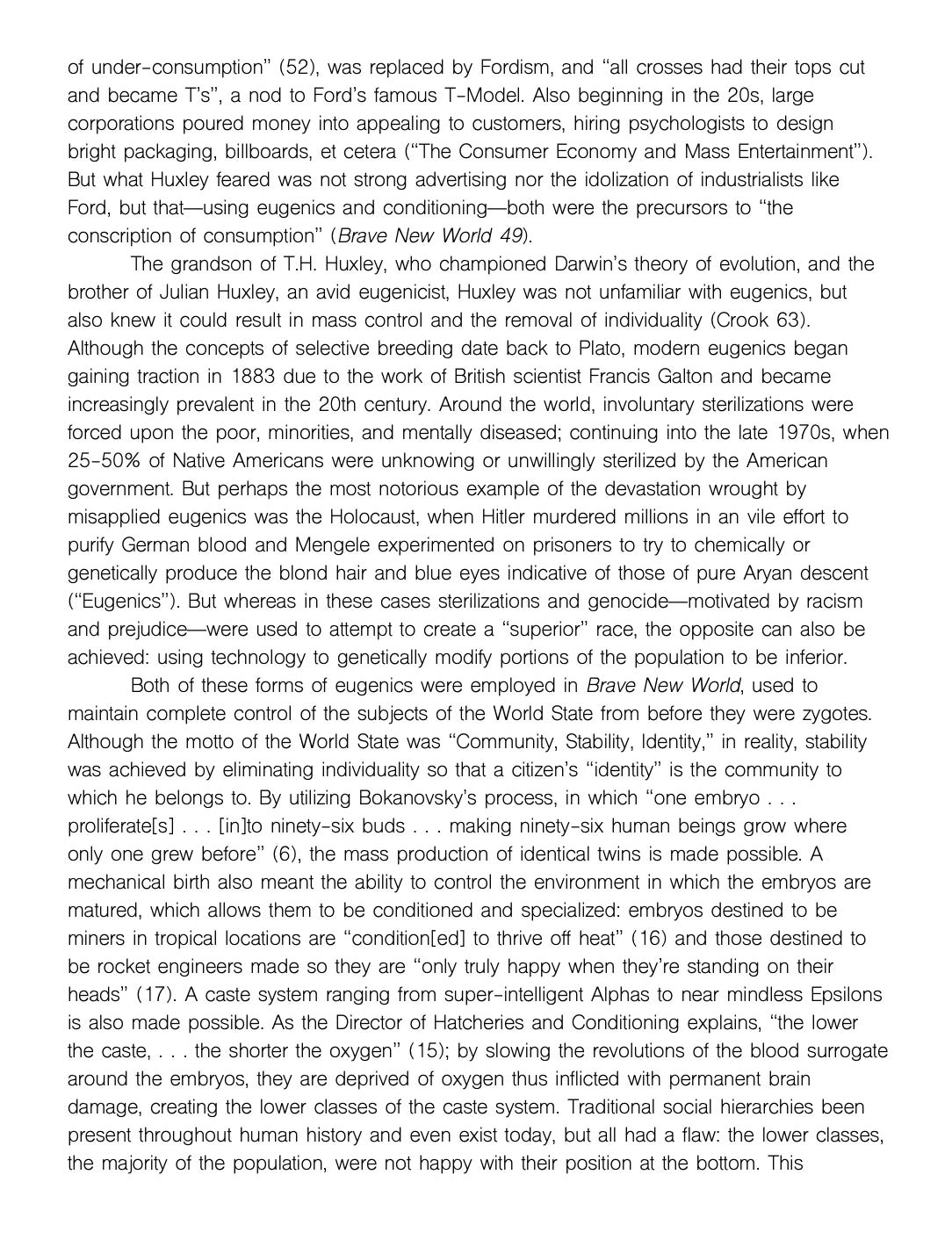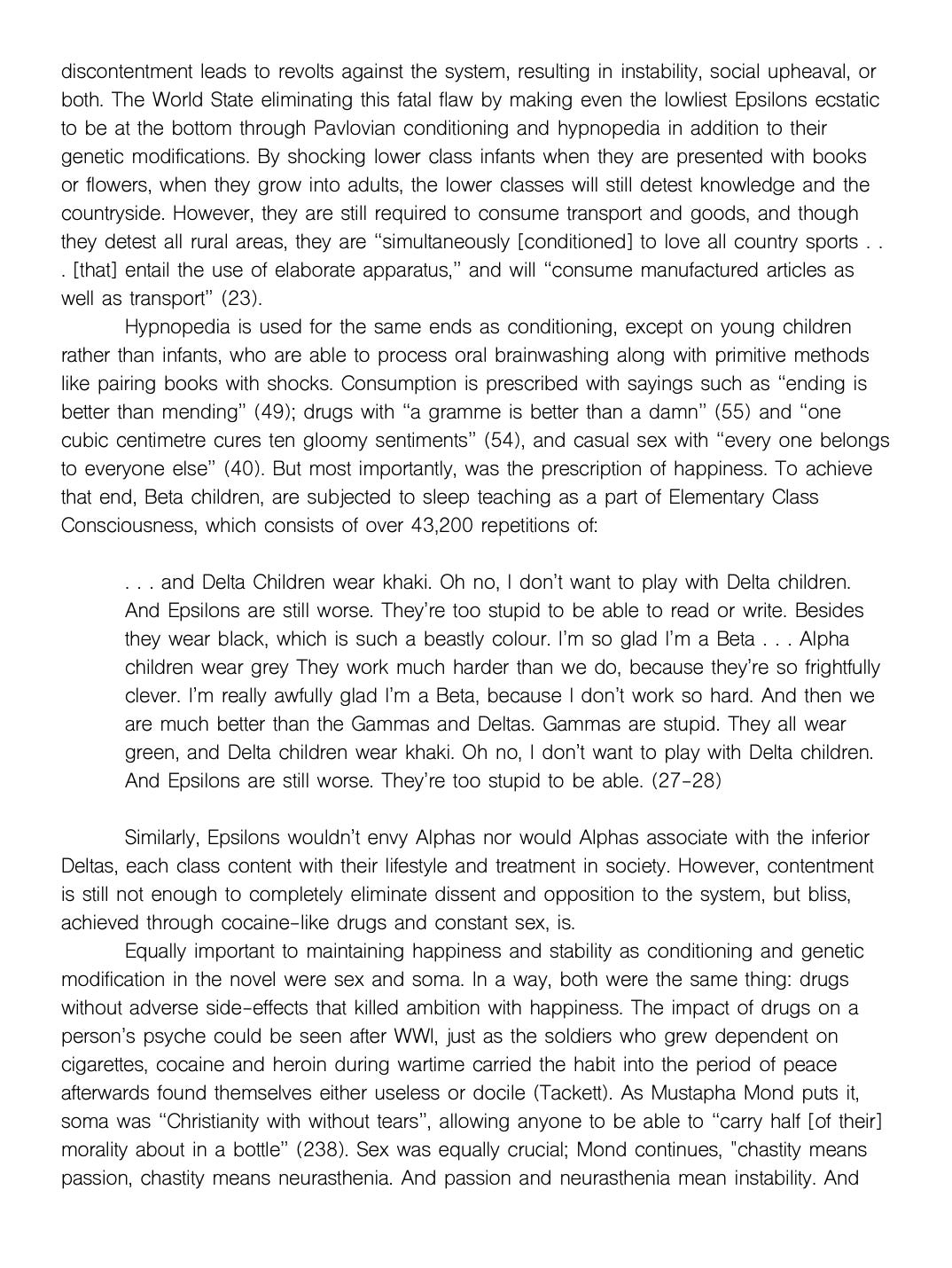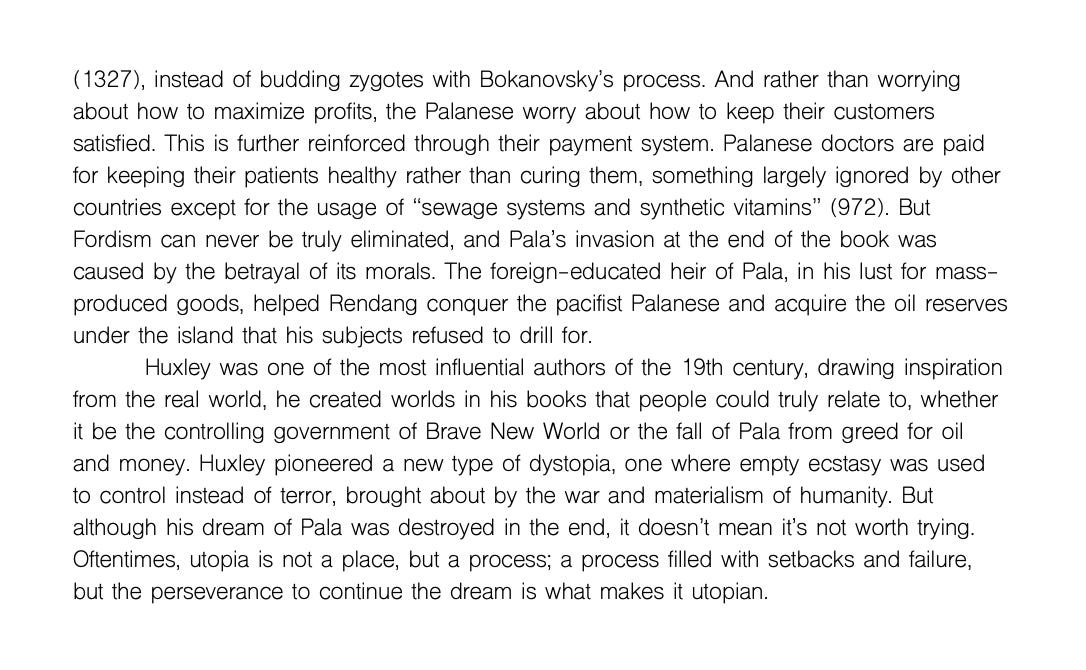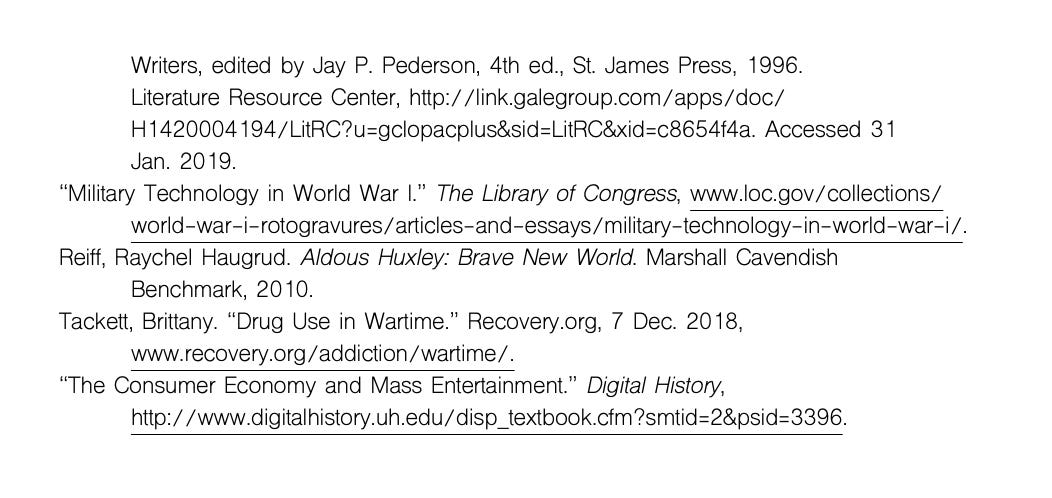Huxley's Utopias
Dysgenics, LSD, and lots of sex
This post is prefaced by a discussion on lobotomies.
FOREWORD
The logic goes: if good exists, there must be best.
The chase for utopia is a tale as old as time. Since Plato’s world of forms, we clean a room and imagine the spotless. We see a strong man and imagine the invincible.
Classic mistake: surpassing du.
…
While working on a dialogue about eugenics, I began thinking about the possibility of “dysgenics,” or misuse to create lower castes. This led me to dig up an essay from fourteen-year-old Wisp comparing Huxley’s Brave New World and his last novel Island.
The former, aptly set in London, is often labelled a “dystopia.” This confused me as the vast, vast majority of people seem to be quite happy in the novel, however artificial it may be.
Overall, I found this process incredibly rewarding and decided to dedicate a new series, Unearthed, to revisit some old pieces. I’ll continue talking about dysgenics, antidepressants, and plenty more after the essay:
…
…
ALDOUS
Huxley must be some sort of kindred spirit.
I don’t think little Wisp realized this, but his mission was also to “shock the stupid and morally reprehensible truth-haters.” Fortunately, Brave New World was brilliant, unlike arguing with your English teacher.
I like to think of building utopia as a character selection screen. You pick out your hair, then eye color, and eventually assign skill points. You have a finite number, so you pick carefully. The World State simply maxed out happiness and progress.
There’s no war, minimal suffering, maximal happiness, and optimal allocation of resources. What is there to complain about?
…
Ok, Mr. Kindred Spirit, the novel was obviously satire. You’re missing the point.
Sure, happiness is artificial, but how different is that from the status quo? People take soma holidays in opioids, SSRIs, and other substances. One quote from Ted Kaczynski lives in my head:
Imagine a society that subjects people to conditions that make them terribly unhappy then gives them the drugs to take away their unhappiness . . . In effect antidepressants are a means of modifying an individual's internal state in such a way as to enable him to tolerate social conditions that he would otherwise find intolerable.
This is what Huxley calls the “conscription of consumption.” At least soma is potent and fully subsidized.
…
The core tension in Brave New World is best captured in the dialogue between John the Savage and Controller Mustapha Mond. Here’s a quick summary:
JOHN: Suffering, struggle, and pain are essential to the human experience. By eliminating suffering, we also lose heroism, passion, and love.
MUSTAPHA: Society must prioritize stability, which protects the happiness and well-being of its citizens. We guarantee these through conditioning, soma, and the encouragement of leisure and pleasures.
JOHN: We should have the freedom to make choices and pursue truth, even if those choices lead to hardship. The suppression of knowledge, art, and religion prevents us from experiencing the full range of human emotion.
MUSTAPHA: The needs of the many outweigh the needs of the few. The sacrifice of a few higher ideals, such as the pursuit of ultimate truth, is worth the greater good of such a society.
Spoiler Alert: John kills himself. Overwhelmed by guilt after indulging in pleasures—especially an orgy, which he sees as the ultimate betrayal of his Shakespearian values—John isolates himself in a lighthouse.
But when media and curious citizens invade his solitude and turn his self-flagellation into a spectacle, John sees death as the only way out.
…
Let’s compare this to the tension between Will Farnaby and the Palanese in Island:
WILL: The modern world, with technology and economy, drives progress. Innovation is essential to solve problems like poverty, disease, and hunger.
PALA: True well-being is not just physical or material but also emotional, psychological, and spiritual. The modern world’s focus on progress and power sacrifices happiness and social harmony.
WILL: People are inherently driven by self-interest and desire. Power and progress are necessary evils in a complex, globalized society. Utopian ideals are ultimately unsustainable in a world filled with competition and scarcity.
PALA: By working together, people can achieve more than by competing against each other. The modern world’s exploitation of natural resources and relentless pursuit of growth are unsustainable and will ultimately lead to ecological collapse.
Unfortunately, Island is not only a dreadfully boring read but also a complete failure. It’s quite fitting that the heir betrays Pala for oil money.
.
.
.
MY TAKE
We can see that Huxley desperately wants Pala to be true, but is pessimistic such a world can exist.
I feel the same. I share his obsession with Vedanta, non-duality, and moksha—but the ills of hermit life are quite apparent to all.
However, I stand by Brave New World as utopian. The World State has simply condensed the world to a very few people—the Controllers themselves.
…
In essence, the core tension in both novels is between pleasure and joy.
The translators of the Upanishads are very attentive to this distinction: the former is what the World State provides and the latter is what John craves. But two groups of people still access the full spectrum. The first are the exiles:
Bernard Marx: His shared last name with Karl is no accident. Marx is dissatisfied because he doesn’t fit in with the Alphas, both physically and socially. He believes exile is the greatest punishment when it is actually the greatest reward—in this sense, exile is similar to Plato’s death.
Helmholtz Watson: An allusion to Mr. von Helmholtz and perhaps a mouthpiece for Huxley, he is the Alpha Plus of Marx’s dreams. But he still feels an emptiness he can’t quite place a finger on. His search for meaning leads to exile, and he asks Mond for an island with a bad climate to help him write (lol).
John is the exception here, but this is solely due to Mond’s curiosity. To see how an outside variable will respond to the World State, he denies John’s request for exile and condemns him to a life in London (huge bummer). This brings us to the second group:
Mustapha Mond: Mond was once naïve scientist, rebelling against the World State, but when he was apprehended, chose to join them over exile. John is surprised when he quotes Shakespeare back at him, and he is fully devoted to overseeing the delicate world experiment.
I agree with Mond here. Every lasting society is built on inequality—this is a selected trait of every society organism. It cannot be arbitrarily removed.
The World State has simply reduced the organism from the natural hierarchy formed by billions of autonomous units to a council of ten philosopher-kings. They lead an enormous production machine by bearing the burden of love and suffering.
Whether the latter is preferable is a matter of personal opinion.
…
Let’s look at [Redacted], perhaps best real life example.
When asked to describe the people of [Redacted] in one sentence, my mom said hao yong—easy to use. They are conditioned to love the Organism and produce for her. Some of my friends cried while watching her military parade.
Similarly, most with the will to refuse the social contract of obedience for stability, wealth, and pleasure either leave or are assimilated into the ruling party.
This society is one of humanity’s lengthiest and most prosperous. And, unlike the lumbering bureaucracy of the United States, it moves fast.
Depending on the leader, it soars or sinks spectacularly.
…
Brave New World perfects what [Redacted] cannot.
There is no social contract. The vast, vast majority never form the desire for joy in the first place. Pleasure is free and plentiful.
And everyone who seeks to be realized is realized. These few thousand are blessed with exile or assimilation.
We can sit here and discuss larger questions because we live in luxury. The basic needs of food, water, and shelter are met. But someone has to work in the mines. Someone has to man the factories.
Most are content with “out of sight, out of mind.” They don’t know how much things cost to produce. They don’t wonder why the product is cheap.
Whether the Controller’s conditioning is a curse or a blessing remains to be seen.
…
Read more little Wisp. Or more Huxley








